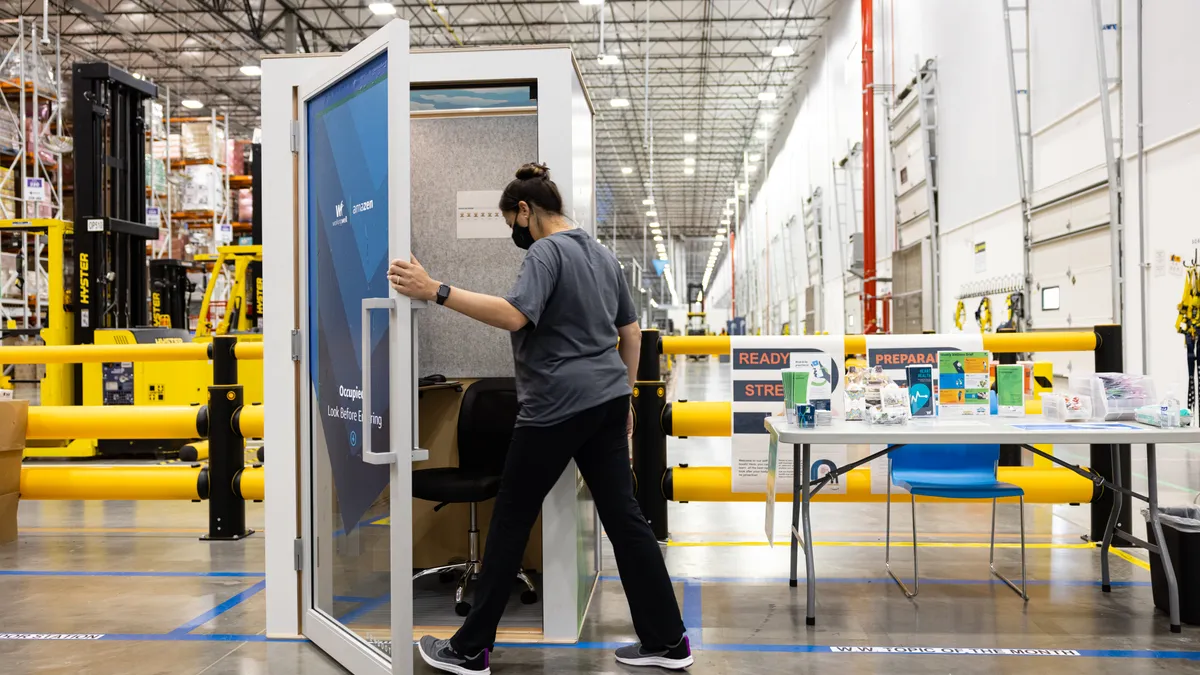Dive Brief:
-
Morgan Stanley analysts this week lowered their target share price for Amazon, citing its recently announced need for more transportation and fulfillment employees, its plans to boost wages and benefits in the U.S., its slowing retail revenue — and the pressure from all that on margins and profitability.
-
Earlier this month, Amazon said it's working to hire 125,000 people in those roles, and that it has increased its starting pay and offered bonuses in some areas; as a result its average starting hourly wage for those roles tops $18, reaching $22.50 in certain places.
-
That's the e-commerce giant's third notice of higher wages so far this year, pushing its logistics headcount costs up 50% year over year and total labor costs up 60% (or $4 billion) year over year, per Morgan Stanley's e-mailed comments.
Dive Insight:
The free market may be forcing Amazon to do what years of bad press and dead-end unionizing efforts have been hard pressed to do: pay higher wages for more employees.
Amazon itself has maintained that it pays "industry-leading" wages. In April, the company announced wage hikes, after it prevailed against a unionization effort at its Bessemer, Alabama, warehouse. Last month, a National Labor Relations Board officer recommended a do-over of that vote in light of what it deemed credible accusations of company interference during the run-up to the election.
The concerns brought up by the Morgan Stanley analysts underscore that while Amazon is a tech juggernaut that has disrupted the retail industry, its retail business is the most precarious of its operations. The company has seen steady growth and/or dependable profitability from its AWS cloud business and, more recently, its advertising business. But, while e-commerce has generally thrived during the pandemic, not even Amazon's retail business has been able to escape the whipsawing of supply and demand.
That includes employment. With hiring more difficult during the pandemic, many companies, including several retailers, have increased their hourly pay. Meanwhile, Amazon has grown its fulfillment and logistics workforce in North America by 200,000 in the last five months, Morgan Stanley analysts, led by Brian Nowak, said on Sunday. Their concerns about the hit to Amazon's profitability are exacerbated by what they called its slowing revenue in its retail business. They calculate that by next year the company's retail EBIT margins will decline 270 basis points compared to 2019.
"[I]t is also important to remember that rising wages are impacting all businesses (most recently FedEx last week) and [Amazon's] competitors," Nowak said. "But even [Amazon's] scale can't 'absorb' this near-term."
















